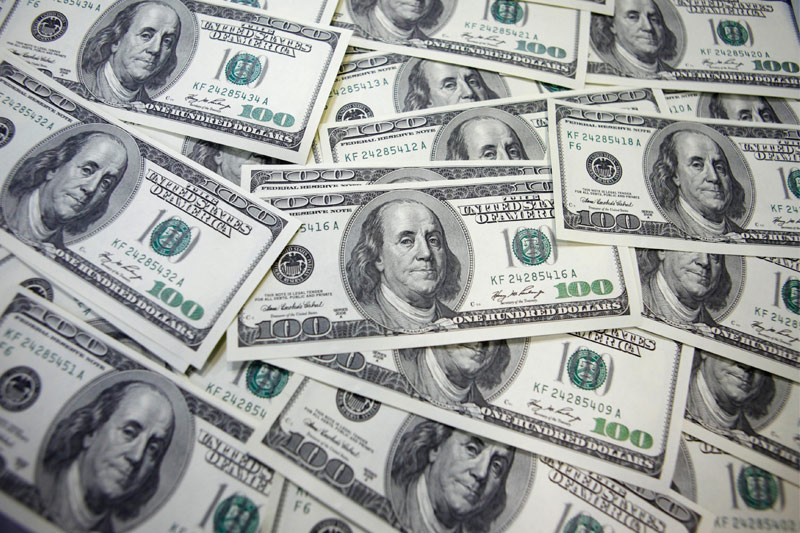By Hideyuki Sano
TOKYO, Feb 20 (Reuters) - The dollar steadied on Tuesday after pulling ahead from a three-year low against a currency basket the previous day, though it was dogged by growing concerns a ballooning fiscal deficit in the United States could disrupt the economy.
The dollar index .DXY stood at 89.215, trading about one percent above Friday's three-year low of 88.251.
The U.S. currency has been weakening in recent months, with the positive impetus from rising U.S. interest rates offset by a barrage of bearish factors.
Initially, the view that other central banks will catch up with the Federal Reserve in tightening policy this year was cited as a reason for the dollar's underperformance.
Then came comments from U.S. Treasury Secretary Steven Mnuchin, which stoked concerns the United States could pursue a weaker dollar policy as its trade deficit rose to highest level in almost a decade. USTBAL=ECI
Mounting worries about the U.S. budget deficit, which is projected to balloon to more than $1 trillion in 2019 amid a government spending splurge and large corporate tax cuts, have also undermined the greenback.
"The dollar has been falling continuously, but with changing themes. At the moment, a projected increase in the U.S. debt issues, reduction in the Fed' bond buying and bulging U.S. fiscal deficit are the main focus," said Daisuke Uno, chief strategist at Sumitomo Mitsui Bank.
"That should mean U.S. long-term yields will remain high while the dollar will stay cheap, that is to say any retreat in the dollar is likely to be small while its fall could be much bigger," he said.
Economists say U.S. President Donald Trump's tax cuts and spending plans could backfire by overheating an already strong economy and causing an unwanted pick-up in inflation.
Against the yen, the dollar traded at 106.75 yen JPY= , up 0.15 percent for the day and bouncing back from its 15-month low of 105.545 set on Friday.
The euro EUR= stood at $1.2406, backing down from Friday's three-year high of $1.2556.
Euro zone finance ministers on Monday chose Spanish Economy Minister Luis de Guindos to succeed European Central Bank Vice President Vitor Constancio in May. move is likely to boost the chances of German Bundesbank Governor Jens Weidmann becoming head of the ECB next year to succeed Mario Draghi in 2019, possibly giving the ECB's policy a more hawkish tilt.
Expectations that the ECB will roll back its stimulus have been the major driving force behind the euro's rally since last year.
Still, in the near term, investors may be cautious about buying the common currency amid political uncertainty in the continent.
German Social Democrats (SPD) start voting in a postal ballot on Tuesday on whether the centre-left party should go ahead with the agreement its leaders clinched last week to renew their power-sharing alliance with the chancellor' Angela Merkel's conservatives. results of the vote, which took place as the SPD's support fell behind that of the right-wing Alternative for Germany (AfD), is due on March 4. will also hold a general election on March 4, which is expected to lead to a hung parliament. (Editing by Shri Navaratnam)
